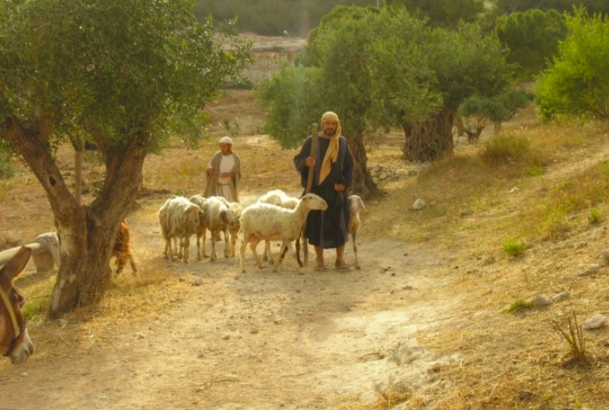Thoughts on parashat Ekev.
This week’s Torah portion includes a beautiful vision of the Promised Land, spoken through the mouth of Moses on the eve of its conquest:
For the LORD your God is bringing you into a good land, a land with streams and springs and fountains issuing from plain and hill; a land of wheat and barley, of vines, figs, and pomegranates, a land of olive trees and honey; a land where you may eat food without stint, where you will lack nothing; a land whose rocks are iron and from whose hills you can mine copper. When you have eaten your fill, give thanks to the LORD your God for the good land which He has given you. (Deuteronomy 8:7-10)
Rabbinic minds developed this vision of Eretz Israel by exceedingly idealizing the Promised Land. For example, Rabbeinu Bachya believed that the land of Israel, as well as Jerusalem itself in particular, contained all six climates of the world, which rendered the land’s climate as marvelous. Gaon of Vilna believed that the land of Israel contained all possible minerals and all the plants people needed, so there was no need to import anything. The rabbis, however, idealized the land of Israel even more. The nineteenth-century rabbi of Bratislava, Moses Schreiber, in his work Chatam Sofer wrote that fruits of Eretz Israel were tremendously large, as, for example, wheat grains the size of ox kidneys and lentils the size of gold dinars. Rabbi Shlomo Efraim Luntschitz, who lived at the turn of the 16th and 17th centuries, in his work Kli Yakar claimed that Eretz Israel does not need storage cities; it always has abundance, and there is no need to save from one year to another – its crop is blessed every year, without a break. Other 19th and 20th-century commentators, such as Jehuda Arie Leib Alter and Shabbatai HaKohen, have argued, for example, that bread made from grains of the Land of Israel has miraculous properties: it can be eaten in infinite amounts, without fear of gaining weight.
There was a disagreement regarding whether the streams and fountains could itself provide enough water for irrigation of fields. 13th century French commentator, Hezekiah ben Manoah, known as Chizkuni, believed that the abundance of water in these streams and fountains depend on rainfall, thus each individual will have to trust in God’s grace for his water. Nachmanides, however, saw a natural blessing in them and that they carry enough moisture to every place it is needed, therefore the land needed no rivers, nor a specific ‘water engineering’.
The first Zionists emigrating to Eretz Israel in the nineteenth and twentieth centuries found out how true all these visions were. These visions do not correspond to reality even today: yes, Israel is a very developed country, abundant in various goods, but all this is the result of hard work of many generations. These rabbinical visions actually teach us how important human experience is when it comes to knowing and judging reality, and how easy it is to make a mistake when one does not have such an experience. These commentators have spent their entire lives in a different world, in Europe, only fantasizing about the Promised Land. The same is often true today, due to instant access to information on everything that is happening anywhere in the world: people are constantly tempted to form and express themselves their opinions about places and countries, having in fact no idea about the reality of these places. Let it be a lesson of restraint for us; let us be restrained in our words, concepts and recipes for the life of human communities who live in other countries and on different continents.
Shabbat shalom!

